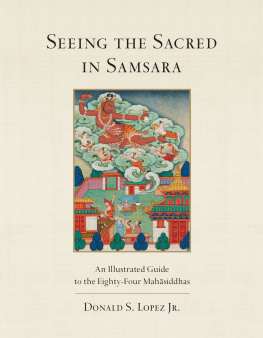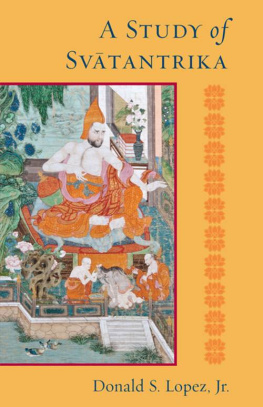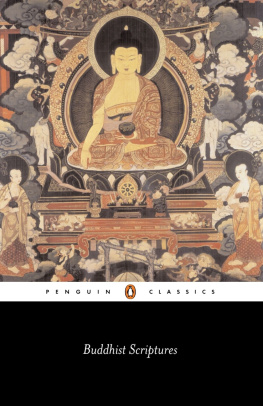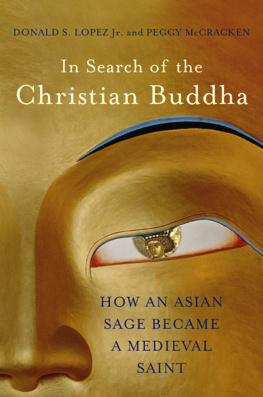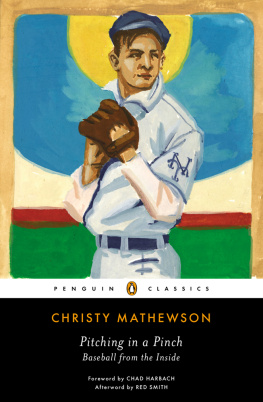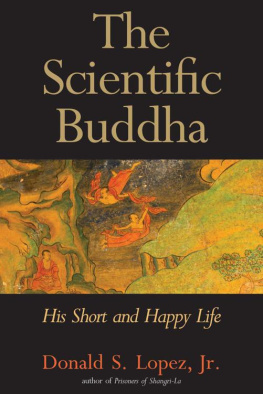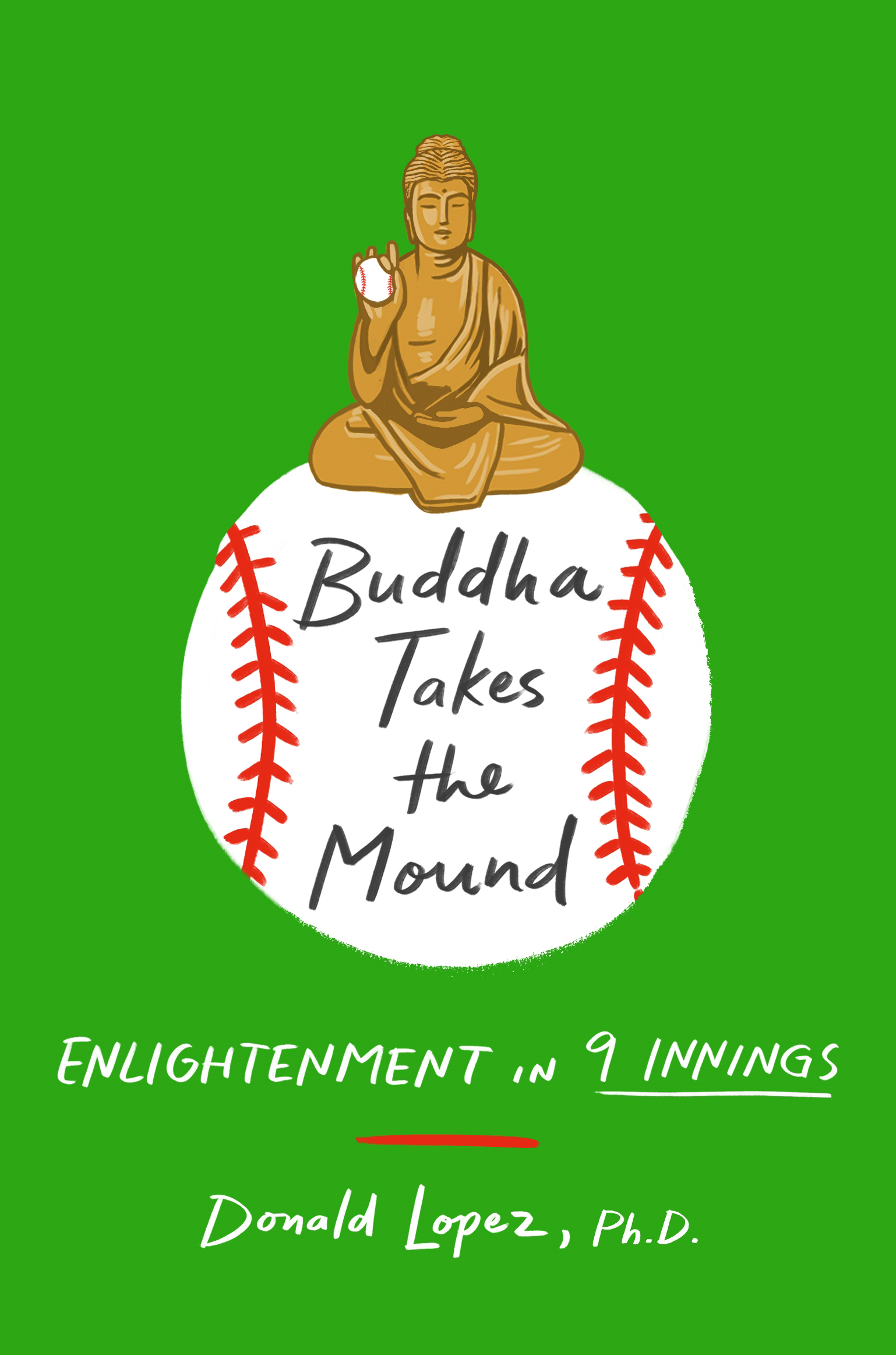The first of the Buddhas famous four noble truths is All is suffering. More than any other sport, baseball is suffused with suffering. The best batters fail to get a hit 70 percent of the time. The scoreboard in every stadium each day displays a giant E (for errors). Relief pitchers are judged not by their wins but by their saves, the number of times they avert disaster. A team that loses four of every ten games always goes to the playoffs; a team that loses five of every ten games never does. The season seems endless162 gamesmany endured in the dog days of August.
This book demonstrates that baseball is a Buddhist game. Like Buddhism, baseball has its own elaborate universe, with good karma leading to rebirth as a god in the major leagues, an abode of private planes and luxury suites. Bad karma leads to rebirth in one of the trifling hells of the minor leagues, with names like Low A, with smelly buses and cheap motels. Over the course of a career, a player wanders between these worlds. Only a tiny few ascend to nirvana, located in Cooperstown, New York, where the relics of the saints are enshrined: the bat, the ball, the glove, the cap, the cleatsjust as the Buddhas relics are enshrined in pagodas.
Baseball has often been called a religion, with places like Fenway Park and Wrigley Field regularly referred to as shrines. (The word fan is derived from fanatic.) This book demonstrates that that religion is Buddhism, where life is described as an endless round of suffering, from one lifetime to the next, marked by inevitable yet unpredictable loss. We suffer this loss each season, futilely hoping that the next lifetimethe next seasonmight be different. And yet the promise of enlightenment awaits.
I am a Yankees fan. I was born on June 1, 1952. The Yankees did not play. The next day they beat the Indians 2-0 at Yankee Stadium, a four-hit complete game shutout by Allie Reynolds. Mickey Mantle, leading off and playing right field, went 1 for 4, a double off Bob Lemon, who was 22-11 that year. My first memory of a Yankees game was when I was eight years old, Game Seven of the 1960 World Series, when the Pirates second baseman Bill Mazeroski (who had hit eleven home runs that season) hit a walk-off home run off Ralph Terry (who had given up fifteen home runs in 166.2 innings that season). Yogi Berra was playing left field that day, and I still remember him running back and then reversing course and turning toward the dugout as the ball went over the high ivied walls of Forbes Field. This memory is in black and white, the colors on the television screen, the colors of the Pirates uniforms.
The other defining moment of my devotion to the Yankees was Game Seven of the 2001 World Series, when Mariano Rivera broke the bat of Luis Gonzalez, producing a bloop over a drawn-in infield. The ball landed exactly where Derek Jeter would have been standing had he been playing at normal depth. Or thats what I read. I turned off the television before the ball hit the ground. That memory is in an offensive shade of teal, the color of the Diamondbacks uniforms. I have never watched a replay of that game, or a clip of that hit. Its too painful.
Over those forty-two years, from 1960 to 2001, the Yankees won the pennant fourteen times and won the World Series eight times, more than any other team. I remember all of those titles: Willie McCovey hitting a screamer right at Bobby Richardson in Candlestick Park, Game Seven of the 1962 World Series, the Yankees leading 1-0 with two outs in the bottom of the ninth, Matty Alou on third, Willie Mays on second. Tino Martinez doing that little jump after he hit a grand slam off Mark Langston to break a 5-5 tie in the bottom of the seventh in Game One of the 1998 World Series. Yet what remains most vivid are those two losses. Baseball is about suffering, even for Yankees fans.
I am a Yankees fan because my father was a Yankees fan. For me, and for so many, the relationship to the team, and hence that sense of identity, is inextricable from the relationship to ones father. He was born in Brooklyn, playing sandlot baseball in Canarsie, but he was always a fan of the Yankees, going to the Bronx to watch Ruth, Gehrig, and DiMaggio. He was a fighter pilot and ace in World War Two, flying P-40s and P-51s in China. He stayed in the newly formed Air Force after the war, serving as a test pilot for the first jets at Eglin Field in Florida, sometimes flying an F-86 Sabre Jet to St. Petersburg to watch the Yankees in spring training. The Air Force sent him to Cal Tech to study aeronautical engineering when I was four years old. On October 8, 1956, he ran into class to tell everyone that Don Larsen had just pitched a perfect game, only to receive perplexed stares from his professor and classmates. He explained that they preferred the Fourier series to the World Series.
My father was a Yankees fan to his dying day. In February 2008 he suffered the heart attack that would eventually kill him. When I got the news, I immediately flew to Washington and took a taxi directly to the hospital. When I walked into the ICU, he took off his oxygen mask and said, Did the Yankees invite Doug Mientkiewicz [a utility first baseman, lifetime BA .271] to spring training?
My father taught me how to throw a baseball. Like so many fathers and sons over the decades, we would play catch every summer night before my mother called us in for dinner. I played in Little League when I was growing up, the low point coming when I was in the third grade. The coach put me in to pitch and I could not throw a strike, walking in run after run. The umpire was my father. I remember crying in the car as we drove back home, asking him why he wouldnt give me the outside corner.
I eventually got over it. When I went to college, he gave me his glove, a 1960 Rawlings six-finger glove, with a deep-well pocket, the Bob Turley model. Turley (lifetime ERA 3.64) pitched for the Yankees. We played catch on the beach in Florida on his eightieth birthday, with my father using that glove.
Yankee Stadium opened in 1923, the year my father was born. It closed in 2008, the year he died. Back when there was a place called DC Stadium and a team called the Senators, he and I would be there when the Yankees came to town; we never missed a twi-night doubleheader. We always sat in the upper deck along the first-base line, both for its vantage point of the field of play and so we had a good view of the visitors dugout, where we could see Mickey Mantle and Roger Maris and Elston Howard (I could provide the entire 1963 lineup, but will not).
He and I watched hundreds of games together on television, and as I have watched the Yankees since he died, I can hear his voice; I know exactly what he would say about each pitch and each play. When I was a kid, he sometimes used terms that people dont use anymore, for good reason, terms like Chinese home run to describe a ball that barely clears the fence, a term he learned from listening to the announcers at the Polo Grounds. There were many such home runs when Yankee Stadium was only 295 feet down the right field line, but somehow they were hit only by opposing players like Rocky Colavito. When Mickey hit one, my father would say, He didnt get it all, but it still went out.



